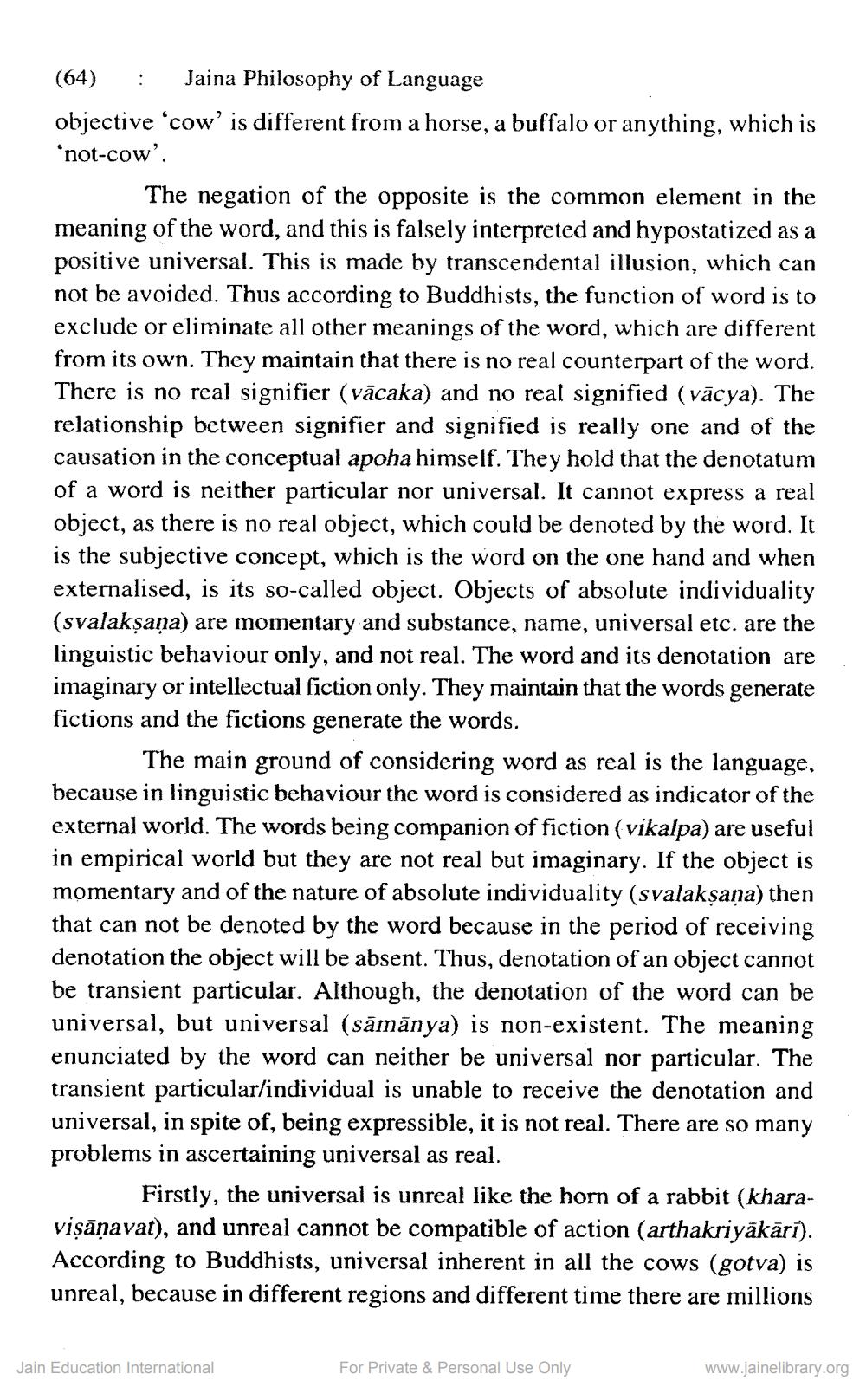________________
(64) : Jaina Philosophy of Language objective cow' is different from a horse, a buffalo or anything, which is ‘not-cow'.
The negation of the opposite is the common element in the meaning of the word, and this is falsely interpreted and hypostatized as a positive universal. This is made by transcendental illusion, which can not be avoided. Thus according to Buddhists, the function of word is to exclude or eliminate all other meanings of the word, which are different from its own. They maintain that there is no real counterpart of the word. There is no real signifier (vācaka) and no real signified (vācya). The relationship between signifier and signified is really one and of the causation in the conceptual apoha himself. They hold that the denotatum of a word is neither particular nor universal. It cannot express a real object, as there is no real object, which could be denoted by the word. It is the subjective concept, which is the word on the one hand and when externalised, is its so-called object. Objects of absolute individuality (svalakşaņa) are momentary and substance, name, universal etc. are the linguistic behaviour only, and not real. The word and its denotation are imaginary or intellectual fiction only. They maintain that the words generate fictions and the fictions generate the words.
The main ground of considering word as real is the language. because in linguistic behaviour the word is considered as indicator of the external world. The words being companion of fiction (vikalpa) are useful in empirical world but they are not real but imaginary. If the object is momentary and of the nature of absolute individuality (svalakṣaṇa) then that can not be denoted by the word because in the period of receiving denotation the object will be absent. Thus, denotation of an object cannot be transient particular. Although, the denotation of the word can be universal, but universal (sāmänya) is non-existent. The meaning enunciated by the word can neither be universal nor particular. The transient particular/individual is unable to receive the denotation and universal, in spite of, being expressible, it is not real. There are so many problems in ascertaining universal as real.
Firstly, the universal is unreal like the horn of a rabbit (kharavisāņavat), and unreal cannot be compatible of action (arthakriyākāri). According to Buddhists, universal inherent in all the cows (gotva) is unreal, because in different regions and different time there are millions
Jain Education International
For Private & Personal Use Only
www.jainelibrary.org




